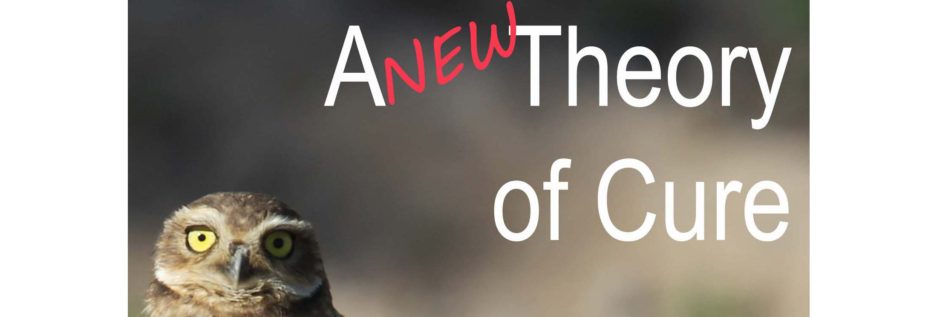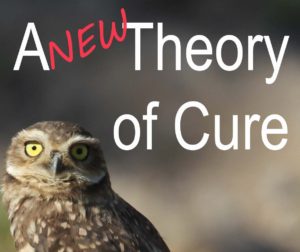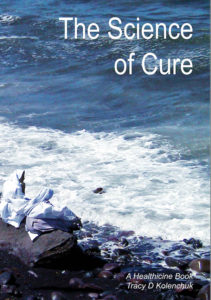A few weeks ago, I noticed my eyes were itchy again. This problem has appeared on and off over the past few years. When I was in Arequipa three years ago, my right eye was very itchy. I went to an ophthalmologist who said “esta irritado,” – (it’s irritated). He prescribed some medicine, mostly vitamin and herbal supplements and went on my way. Over a few weeks, the problem faded. I forgot about it.
Now it was back. My right eye was quite itchy.
The problem waxed and waned, over a few weeks, never going completely away. The left eye was starting to show some itchiness as well. Being in Canada, I decided to go first to my optometrist, with whom I had developed a trusting relationship, to see what he said. When I go there, he was a she. Or, perhaps more accurately, he was on holidays and I saw someone else. I was pre-examined and then sat down in the room where, normally, my eyes would be tested for glasses.
The optometrist entered and asked a few questions. Looked at some pictures and at my eyes. Frankly, I don’t remember much. But, I remember what she said. I remember her cure.
“Your eyes are really dry. We could prescribe some eye drops…”
I replied that I’m not fond of medicines and less fond of putting them in my eyes.
So, she offered another recommendation, with a bit of explanation;
“The problem is simply that your tear ducts are not flowing smoothly. As a result, your eyes are dry and irritated – the right eye a bit more than the left. You can try this and see if it helps.”
- Wet a facecloth with hot water, or heat a wet facecloth in the microwave.
- Press the hot facecloth onto your closed eyes for about two minutes.
- Do this twice a day for about two weeks.
Like much doctorly advice, she finished with “Try it, and see if it works for you.”
Interesting. No drugs. No surgery. Just a simple exercise. I’ll do it. And I did.
As soon as I got home, I tried it. Not much difference. Again the next morning. My eyes felt a bit better. Again at mid-day. The itching was fading. Again in the evening.
The next morning, as I heated up the facecloth, there was almost no irritation. This was working.
The next day, less irritation, but still a bit. Day by day, better.
After a week, I also noticed that my eyelids were open wider than before, less wrinkled somehow.
I knew I should follow the prescription to the end. “Two weeks,” she said. By the time two weeks had passed, the itching was completely gone. My eyes felt like new? Was I cured? Was it cured?
I waited three days without the facecloth without any itching. The fourth day, a small scratchiness in my right eye. Left eye – no problems. I did the facecloth again, and the problem was gone.
Over the next few weeks, I did several tests. It seems I need to use the hot facecloth exercise every two or three days to keep my eyes happy. I’ve been good for over two months now.
Is this a cure?
We often think of a cure as perfect, final, and permanent. However, this is a simplistic view, a set of cure myths and misunderstandings.
In the new theory of cure, there are two basic types of cures.
An attribute cure is a change to the cause, resulting in a permanent cure – until the cause appears again. For example, most surgeries are attribute cures. The wound is stitched and heals, the hernia is repaired, or the tooth cavity is filled. These cures are generally permanent, until another wound, another hernia, or another cavity appears. The cure for an infection, an antibiotic provides a cure – until another infection occurs.
A causal cure is a process that must be maintained to maintain the cured status. A causal cure is a preventative cure, an action that cures and prevents future occurrences. We can’t cure scurvy with any amount of Vitamin C, only the scorbutic state. Scurvy is caused by an unhealthy eating process. Curing scurvy requires an ongoing process to maintain a healthy level of Vitamin C. The same is true of any nutritional disease. However, modern medicine, for all its power, cannot recognize causal cures, has no technique to distinguish treatments from cures.
At first, the facecloth seemed like an attribute cure. Two weeks of heating my eyelids, and I was cured. But no, I’m not twenty any more. My eyelids are 50 years older than that youngster. I can clear the ducts with heat, but they will clog up again in a few days. I need a causal cure. I need the process of applying a hot facecloth every few days to maintain the cured state, to prevent my eyes from itching anew.
I have a causal cure. It’s not in remission, it’s cured. If I stop, in a week, or two years, a new case of illness will likely occur. As long as I maintain the new process, my itchy eyes are cured. There is little difference between this cure and eating healthy foods to maintain a cure of scurvy, malnutrition, or avoid poisoning. Before the illness, no conscious action is needed. Once the illness occurs, it must be cured. Once cured, the cure must be maintained to maintain the cure.
However, modern medicine, for all its power, cannot recognize my cured status, nor my curative action as a cure. If I were to write a book about curing dry eyes, the publisher would require I insert the standard medical disclaimer “this book does not claim to cure….” that we see today in ALL books written about cures – even those by the most authoritative doctors.
There is no cure for Itchy Eyes
It’s not hard to find remedies for itchy eyes. There are many different medicines, eye drops, that provide relief. There are no cures. Part of the reason there are so many cures, is simply that there are so many causes. Itchy eyes is a symptom, not a disease. To cure, we must find and address the cause. There are many cause for itchy eyes.
- if the cause is temporary, like smoke or dust, tearing, or rinsing the eye will relieve the problem. But this is not called a cure. It’s too simple. It didn’t require a medicine, so it’s not a medical cure.
- when the cause is an allergy, avoiding the allergen, if possible, provides relief. It’s a cure, but not medically recognized as a cure. The allergy is still there. Uncured – even if the patient has no signs or symptoms for the rest of a long life. This is simply cure-misunderstanding, or perhaps cure denial.
- or, when the cause is an allergy, then allergy medicines can help (medically, a treatment for signs and symptoms, but not cure).
Amazon lists 54 products for “itchy watery eye relief.” Noe one claim to cure. An Amazon search for “itchy watery eye cure” produces only 15 products. One even has “cure” in the name (Origin Cure), but none make any claim to cure. Cure claims are illegal without approval. There is no approval process for itchy eye cures.
One product offers MY CURE: Microwave Activated Warm Eye Compress for Dry Eyes, Blepharitis & Stye Eye Treatment. However, the word cure does not appear — except in the phrase “have not been evaluated by the FDA and are not intended to diagnose, treat, cure, or prevent any disease or health condition,” which might have been added by Amazon. Does not (dare claim to) cure. Is not intended to cure. Similar products are provided by many companies. Not one dares use the word cure.
A google search for cure for itchy eyes even produces lists of remedies, and treatments that avoid the word cure:
- 10 Itchy Eyes Home Remedies
- Home Treatments for Itchy Eyes
- 5 Remedies for Dry Eyelids – Beat the Itch with These Tips
Official Medical Sites, offer expert advice and recommendations, but the word cure is avoided.
- Johns Hopkins Medicine “Why Are My Eyes Itchy? Answers From an Expert” – but no cures.
- The Mayo Clinic advises treatments, for dry eyes, adding “You’ll likely need to take these measures indefinitely to control the symptoms of dry eyes.” The word cure is not used.
I cured my itchy eyes. The cure proved the cause. No doctor can diagnose the cause of itchy eyes perfectly, without the proof of a cure. “Try this.” – and if it works, that was the cause – and if it works, that was the cure.
My ophthalmologist cured, or helped cure my itchy eyes with her advice. But the cure is not medically recognized. I was not diagnosed. I was not treated. No cure for itchy eyes has been approved. If she dares to claim a cure, she might lose her license. If I claim to be cured – nobody cares. My story is just a story, an anecdote. Anecdotal cures are not scientific, not worthy. Note: Every case of a cure, every true case of a cure is a story, an anecdote.

to your health, tracy
Author: A New Theory of Cure


